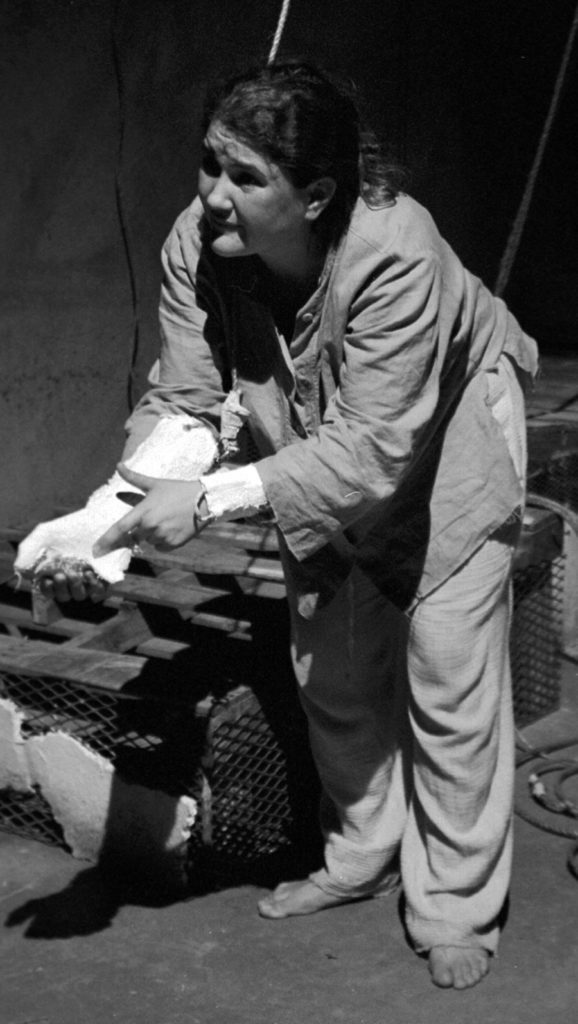Theater by nature is a collaborative process. But the concept carries extra luster when the final product is as imaginative and ensemble-oriented as Buntport Theater’s provocative adaptation of Anton Chekhov’s story “Ward #6.”
Set in a decrepit 19th-century Russian lunatic asylum, the central confrontation is between a so called madman and the doctor assigned to the ward. Ivan, the articulate inmate, has an intelligence exceeded only by his persecution complex. Andrey, a complacent physician who considers Ivan the only man worth talking to in the entire town, enrages his patient by speaking dispassionately about rising above suffering before heading off to his soothing book-lined study.
One is up to his rope restraints in brute reality. The other is tethered to an increasingly numbing intellectual retreat. Political tyranny, detached philosophy and the unfathomable purpose of human suffering swirl together as the pair’s relationship takes a darkly ironic detour.
While the tale – which also has its lighter moments – won’t be everyone’s glass of vodka, those who like challenging theater will find the show stimulating.
Buntport’s six members create, direct, act and design the shows. Here, Brian Colonna, Hannah Duggan, Erik Edborg and Erin Rollman perform. Matt Petraglia and SamAnTha Schmitz handle off-stage duties, providing effects such as mournful notes that sound like a bereaved cello.
The troupe performs in a newly converted industrial space that perfectly suits its style. Backed by rough gray walls and exposed pipes, angled wood pallets suggest makeshift beds. Overhead, ropes and pulleys dangle like menacing vines sprouting unconventional props.
Voices echo out of the darkness as the inmates, clad in shapeless pajamas, enter their dismal abode. Objects descend with the flick of a rope, as one patient is symbolically immobilized with a pair of plaster trousers, while another sports a castlike arm piece, the better to beg for kopecks and attention.
All the actors play several roles, frequently trading off portraying the same character – less confusing than it sounds, thanks to fluid staging and well-delineated interpretations.
Duggan’s Nikita, the vicious guard, glowers and slaps a cloth-wrapped club. Rollman’s Ivan grasps the ropes and circles like a captive animal. Edborg, playing a barber, bellows in, snapping rusty shears as he savors his authority.
And bearing out Chekhov’s point that we can be imprisoned in various ways, Colonna’s Andrey, awash in futility and boredom, retreats to his study, a clever affair of cord and book covers that descends like the bars of a cell.
-Dianne Zuckerman, August 15, 2001, Denver Post
